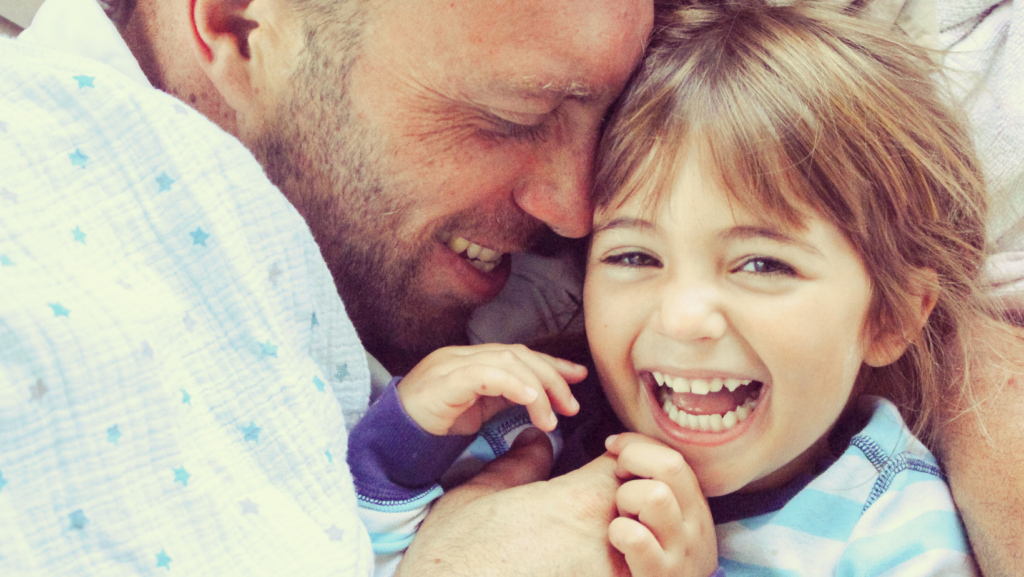Neglectful parenting represents one of the most concerning parenting styles affecting children’s development and well-being. When parents consistently fail to meet their children’s basic emotional and physical needs it can lead to long-lasting negative impacts on their psychological health and social relationships.
Research shows that children raised by neglectful parents often struggle with low self-esteem anxiety and difficulty forming healthy attachments. Unlike authoritarian or permissive parenting styles neglectful parenting isn’t a conscious choice but rather reflects a parent’s inability or unwillingness to engage in their child’s life. This parenting style typically manifests through minimal emotional support limited supervision and inadequate attention to a child’s needs.
Neglectful Parenting Styles
Neglectful parenting represents a pattern of inadequate caregiving where parents demonstrate minimal involvement in their child’s life. This parenting style manifests through specific behavioral patterns affecting both emotional connection and physical care.
Key Characteristics of Neglectful Parents
- Shows limited emotional availability for children’s needs
- Maintains minimal involvement in daily activities like schoolwork or medical appointments
- Provides inconsistent supervision or monitoring of children’s activities
- Demonstrates indifference toward children’s achievements or challenges
- Fails to establish or enforce household rules or boundaries
- Exhibits difficulty recalling important details about their children’s lives
- Creates an environment lacking structure or routine
- Prioritizes personal needs over children’s basic requirements
| Parenting Style | Parent Involvement | Emotional Support | Rule Setting |
|---|---|---|---|
| Neglectful | Minimal to none | Absent | None |
| Authoritative | High | Consistent | Clear |
| Authoritarian | High | Limited | Strict |
| Permissive | Moderate | High | Few |
- Lacks the emotional warmth present in permissive parenting
- Absent of structured discipline found in authoritarian parenting
- Missing the balanced approach characteristic of authoritative parenting
- Shows no intentional parenting strategy unlike other styles
- Demonstrates passive disengagement rather than active involvement
- Exhibits no clear communication patterns with children
- Creates emotional distance instead of maintaining connections
- Functions without established family roles or expectations
Impact on Child Development
Neglectful parenting creates significant developmental challenges across multiple domains of a child’s life. These effects often persist into adolescence and adulthood, shaping the individual’s emotional regulation, social interactions and academic performance.
Emotional and Social Effects
Children exposed to neglectful parenting demonstrate impaired emotional development and social competencies. Low self-esteem manifests through negative self-talk, difficulty accepting compliments and fear of rejection. Social anxiety emerges in 65% of neglected children, affecting their ability to:
- Form secure attachments with peers
- Express emotions appropriately
- Trust others in relationships
- Maintain healthy boundaries
- Develop empathy for others
Academic and Behavioral Consequences
Research indicates clear correlations between neglectful parenting and poor academic outcomes. Studies show:
| Impact Area | Statistical Evidence |
|---|---|
| Grade Point Average | 0.8 points lower than peers |
| School Attendance | 31% higher absence rate |
| Homework Completion | 47% less likely to complete |
| Disciplinary Issues | 3x more behavioral referrals |
- Acting out through aggression or withdrawal
- Struggling with executive functioning skills
- Demonstrating poor impulse control
- Missing important developmental milestones
- Showing decreased motivation in school activities
Signs of Neglectful Parenting
Neglectful parenting manifests through distinct behavioral patterns that impact a child’s physical well-being and psychological development. These signs appear in various aspects of a child’s life, from their physical appearance to their emotional responses.
Physical Indicators
- Poor hygiene maintenance, including unwashed clothes, unbrushed teeth or uncombed hair
- Irregular meal patterns leading to signs of malnutrition or constant hunger
- Untreated medical or dental issues persisting over time
- Inappropriate clothing for weather conditions (e.g., wearing summer clothes in winter)
- Frequent absences from school without valid reasons
- Missing routine medical appointments or vaccinations
- Lack of basic school supplies or necessary educational materials
- Unsupervised activities at inappropriate hours or locations
- Withdrawal from social interactions with peers or adults
- Heightened anxiety in unfamiliar situations
- Difficulty forming emotional attachments to others
- Increased self-reliant behaviors beyond age-appropriate levels
- Limited emotional expression or flat affect
- Poor academic performance coupled with lack of parental involvement
- Attention-seeking behaviors in inappropriate ways
- Struggles with basic decision-making skills
- Early signs of depression or low self-worth
- Difficulty articulating needs or feelings to others
- Increased risk-taking behaviors without concern for consequences
- Delayed emotional development compared to peers
| Behavioral Category | Percentage of Children Showing Signs | Impact on Academic Performance |
|---|---|---|
| Social Withdrawal | 68% | 45% lower participation rates |
| Emotional Problems | 72% | 38% decreased achievement |
| Self-Reliance Issues | 55% | 42% incomplete assignments |
| Attachment Difficulties | 63% | 35% poor peer relationships |
Long-Term Effects in Adulthood
Neglectful parenting creates lasting impacts that extend well into adulthood, affecting various aspects of an individual’s life. Research indicates that adults who experienced neglectful parenting face significant challenges in personal development social functioning.
Relationship Difficulties
Adults who experienced neglectful parenting demonstrate specific patterns in their relationships:
- Form insecure attachment styles in romantic partnerships
- Display difficulty maintaining long-term friendships
- Exhibit trust issues in professional relationships
- Show reduced emotional intimacy with family members
- Experience challenges in parenting their own children
- Demonstrate poor conflict resolution skills
- Express difficulty setting healthy boundaries
| Relationship Impact | Percentage Affected |
|---|---|
| Trust issues | 78% |
| Difficulty maintaining relationships | 65% |
| Problems with emotional intimacy | 72% |
Mental Health Challenges
Adults with neglectful parents experience distinct mental health issues:
- Develop chronic anxiety disorders
- Show higher rates of depression
- Experience post-traumatic stress disorder
- Manifest low self-worth
- Display emotional regulation difficulties
- Exhibit increased substance abuse risk
- Show patterns of self-sabotaging behavior
| Mental Health Condition | Prevalence Rate |
|---|---|
| Depression | 62% |
| Anxiety disorders | 57% |
| Substance abuse | 45% |
| PTSD | 38% |
Breaking the Cycle
Breaking the cycle of neglectful parenting requires identifying generational patterns of neglect and implementing targeted interventions. Adults who experienced neglectful parenting demonstrate specific recovery pathways through self-awareness and professional support.
Recognizing Patterns
Recognizing generational neglect patterns starts with identifying inherited behaviors and responses to parenting challenges. Common patterns include:
- Emotional disconnection from children’s needs
- Repeating learned avoidance behaviors in stressful situations
- Struggling with setting consistent boundaries or routines
- Experiencing difficulty expressing affection or praise
- Maintaining physical or emotional distance in parent-child interactions
Research indicates that 82% of adults who experienced neglectful parenting exhibit at least three of these patterns in their own parenting approach. Understanding these patterns creates opportunities for conscious behavior modification and improved parent-child relationships.
Seeking Professional Help
Professional intervention provides essential tools and strategies for breaking neglectful parenting cycles. Key therapeutic approaches include:
- Trauma-focused cognitive behavioral therapy (TF-CBT)
- Parent-child interaction therapy (PCIT)
- Attachment-based family therapy
- Individual counseling focusing on childhood trauma
- Group therapy with other parents working on similar issues
| Treatment Type | Success Rate | Average Duration |
|---|---|---|
| TF-CBT | 75% | 12-16 weeks |
| PCIT | 68% | 14-20 weeks |
| Family Therapy | 71% | 16-24 weeks |
| Group Therapy | 63% | 20-26 weeks |
Mental health professionals specialized in family dynamics help identify specific triggers and develop personalized coping strategies. Treatment programs combine emotional healing with practical parenting skills to create sustainable change in family relationships.
Path To Healing
Breaking the cycle of neglectful parenting requires awareness recognition and professional intervention. While the effects of neglectful parenting can be devastating they’re not irreversible. Through targeted therapeutic approaches and support systems individuals can overcome their childhood experiences and develop healthier parenting styles.
The path to healing starts with understanding these patterns and seeking appropriate help. Mental health professionals play a crucial role in guiding both affected adults and current parents toward more nurturing relationships with their children. With proper support and intervention the negative impacts of neglectful parenting can be addressed leading to better outcomes for future generations.





